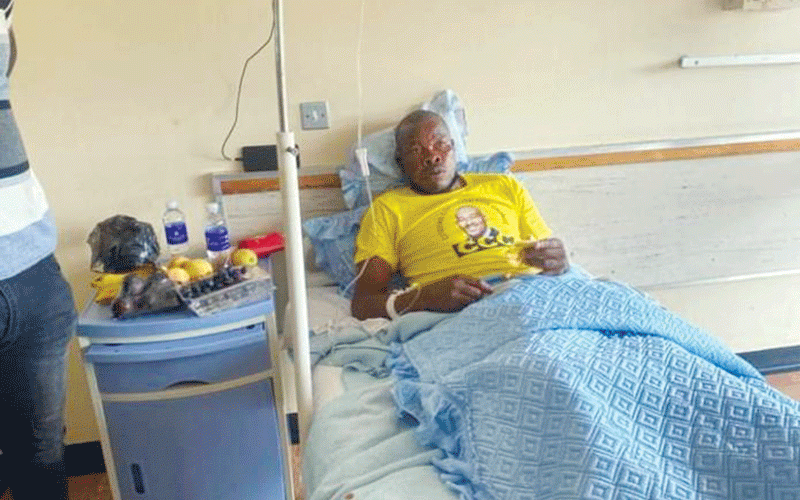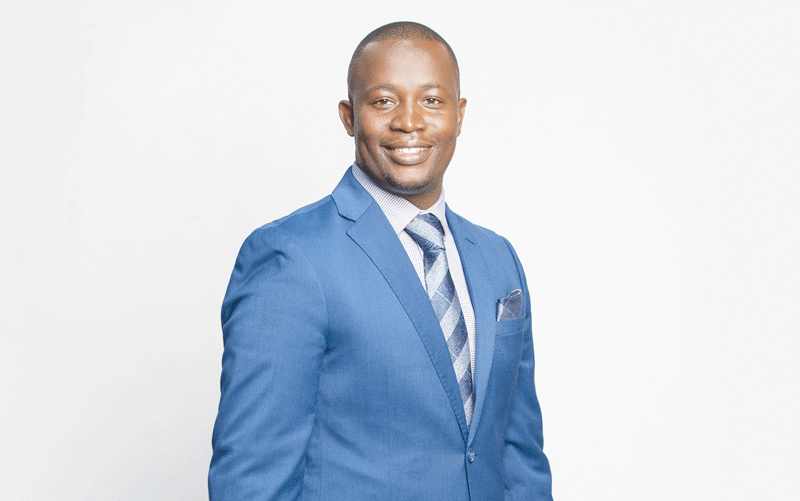
Well-known opposition political activist Godfrey Karembera two weeks ago appeared before the Harare Magistrates Court, where he told the magistrate he was nursing severe injuries, including a suspected broken rib, after allegedly being brutally assaulted and later dumped at Harare Central Police Station during what his lawyers described in court as an abduction and torture by suspected state agents.
This is not the first time police and state agents have been accused of beating up suspects during arrest or while being held in custody, either to extract information or to punish accused persons before submitting them to the courts. Immediately, the notorious case of the abduction and torture of human rights activist Jestina Mukoko comes to mind. On December 5, 2008, she was forcibly abducted from her home, held incommunicado, tortured and kept in inhuman and degrading conditions.
She is not the only one to suffer at the hands of the state; in fact, these notorious torture tactics have mostly been used on political activists and alleged armed robbers with such impunity and consistency that it’s beginning to sound like it is the law. These acts are a violation of the constitution, particularly the Declaration of Rights set out in Chapter 4.
My attention turns to Section 45(1) of the constitution: “This Chapter binds the state and all executive, legislative, and judicial institutions and agencies of government at every level.” This sets out how seriously all arms of government should take their responsibilities in giving effect to the rights.
The constitution confers rights to arrested and detained persons under Section 50(1)(c), which states they must be treated humanely and with respect for their dignity. Abducting and torturing an accused person surely strips them of their dignity and violates the constitution.
In the case of Jestina Mukoko v. The Attorney-General, the Supreme Court, sitting as a Constitutional Court, held that the beating of accused persons had the effect of stripping them of their dignity and was in violation of the less progressive Lancaster House Constitution, which was still in force at that time.
The court ruled: “The prohibition protects the dignity and physical integrity of every person regardless of his or her conduct. No exceptional circumstance, such as the seriousness of the crime the person is suspected of having committed or the danger he or she is believed to pose to national security, can justify the infliction of torture or inhuman or degrading treatment.
“There cannot be a value in our society over which there is so clear a consensus as the prohibition of torture and inhuman and degrading treatment of a person in the custody of a public official. Such treatment should never form part of the techniques of investigation of crimes employed by law enforcement agents, as the law which it is their duty to enforce requires only fair and humane treatment ought to be applied to a person under criminal investigation.”
- Kariba Uhuru accident: Poor state of hospitals exposed
- Polls: Time to introspect
- News in depth: ‘I could have died’: CCC member relives horror of Zanu PF, police terror
- Stop the bloodletting ahead of by-elections
Keep Reading
During my time at Harare Remand Prison, I learned that the Law and Order Homicide Division, which deals mostly with armed robbery cases, had reportedly developed a reputation for shooting to kill or injure suspects already in their custody, reporting these incidents as the use of legitimate force. Cell C1 holds most of these accused persons, who walk with the aid of crutches after having been shot in the leg, often from behind.
The result is accused persons now dread the Homicide Division of the police, whom they accuse of shooting suspects already in their custody. Some of the accused persons I spent time with at Harare Remand Prison, who walked with the aid of crutches, are South Africans Ndiafhi Makhado and Emmanuel Makamo, who were co-accused with Paul Zhou, a Zimbabwean man based in Waterfalls, Harare.
During their arrest, two of their colleagues — Jabulani Ngobeni, 45, and Godknows Machingura, 44 — were shot and killed in an alleged shootout with detectives in Harare. The facts leading to the alleged shootout are contested and are a matter of record at the Harare Magistrates Court.
The accused persons allege they were arrested at a lodge in Harare, did not attempt to flee, and there was no shootout. Instead, they allege their colleagues were executed by the police during interrogation in an attempt to coerce them into giving information.
Police have relied on the Criminal Procedure and Evidence Act (CP&E) (Chapter 9:07) to justify the use of force. The Act outlines procedures for arrest, detention and treatment of accused persons, emphasising the use of force should be reasonable and necessary. Section 42 of the CP&E Act legally allows the use of “reasonable, justifiable and proportionate force in the circumstances to overcome resistance or prevent the person concerned from fleeing”.
However, the act of extracting evidence through torture, which has become a somewhat “acceptable norm” at the Law and Order section, remains unconstitutional and unacceptable in our jurisdiction. The case of Mukoko is helpful in understanding this.
Through her lawyer Beatrice Mtetwa, Mukoko applied for a permanent stay of prosecution on the grounds state officials had used force and torture to extract alleged evidence from her that the Attorney-General intended to use against her in court.
“The second ground was that the decisions made by the public prosecutor to charge the applicant with the criminal offense and to bring the prosecution proceedings were based solely on information or evidence of the crime obtained from her by infliction of torture and inhuman or degrading treatment. It was argued that the institution of the criminal prosecution was rendered invalid by the use of inadmissible information or evidence.
“The assumption was that Section 15(1) of the constitution contains a rule that prohibits the admission or use, in legal proceedings by public officials responsible for the initiation and conduct of criminal prosecution and judicial officers, of information or evidence of the crime obtained from an accused person or any third party by infliction of torture or inhuman or degrading treatment.”
The ground succeeded as argued, as it remains protected in the 2013 constitution, which under Section 70(3) reads: “In any criminal trial, evidence that has been obtained in a manner that violates any provision of this chapter must be excluded if the admission of the evidence would render the trial unfair or would otherwise be detrimental to the administration of justice or public interest.”
The legislature intended to avoid the use of violence, beatings, and torture as a way of extracting evidence from accused persons.
Yet, regardless of these provisions at law, we continue to see the assault without restraint of accused persons, mostly political activists. The list, which includes Job Sikhala, Joana Mamombe, Jameson Timba, Tatenda Mombeyarara and many others, is too long to exhaust and too wide to think of it as a coincidence.
It is a violation of the law, which surely should call the courts to act and stop this abuse in line with Section 44 of the constitution, which reads: “The State and every person, including juristic persons and every institution and agency of the government at every level must respect, protect, promote and fulfil the rights and freedoms set out in this chapter.”
The systematic use of torture and abduction by state agents in Zimbabwe represents a grave violation of both constitutional rights and international human rights standards. The chilling accounts of individuals such as Karembera and Mukoko highlight a pervasive culture of impunity that must be addressed. The constitution explicitly protects the dignity and rights of all individuals, including those accused of crimes.
It is imperative the government, law enforcement agencies and the judiciary uphold these rights, ensuring that no person is subjected to torture or inhumane treatment under any circumstances.
The courts must act decisively to hold perpetrators accountable and restore faith in the justice system. Only through rigorous enforcement of the law and a commitment to human rights can we hope to eliminate these abhorrent practices and promote a society where justice and dignity are upheld for all.
Mhlanga is a law student at the University of Zimbabwe.











